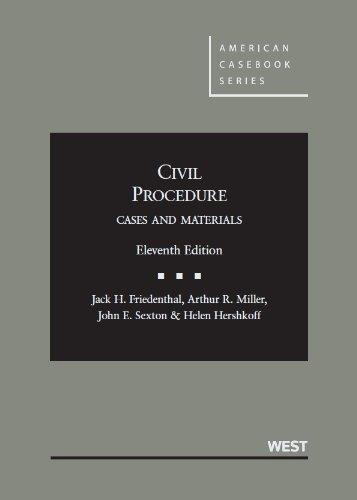1. Defendants in the principal case argued that applying a heightened pleading standard under Rule 9 (b)...
Question:
1. Defendants in the principal case argued that applying a heightened pleading standard under Rule 9
(b) would protect professional reputations and deter the filing of meritless cases aimed at a quick settlement. Why did the court reject their position? Is there a danger that too high a pleading standard will chill the filing of meritorious claims, resulting in suboptimal enforcement and inadequate compensation? See Richman, Lively &
Mell, The Pleading of Fraud: Rhymes Without Reason, 60 S. Calif. L. Rev. 959, 974 (1987).
Indeed, does it even make sense to require the heightened pleading of fraud which, after all, involves conduct that has been concealed and so requires the victim to have access to information that is purposefully not available to her? See Fairman, Heightened Pleading,81 Texas L. Rev. 551, 563 (2002). If Rule 9’s implicit goal is to shield defendant from the expense of extensive discovery, would a better solution be to shift the cost of discovery in fraud cases?
See Sovern, Reconsidering Federal Civil Rule 9(b): Do We Need Particularized Pleading Requirements in Fraud Cases?, 104 F.R.D. 143(1985).
Step by Step Answer:

Civil Procedure Cases And Materials
ISBN: 9780314280169
11th Edition
Authors: Jack Friedenthal, Arthur Miller, John Sexton, Helen Hershkoff






